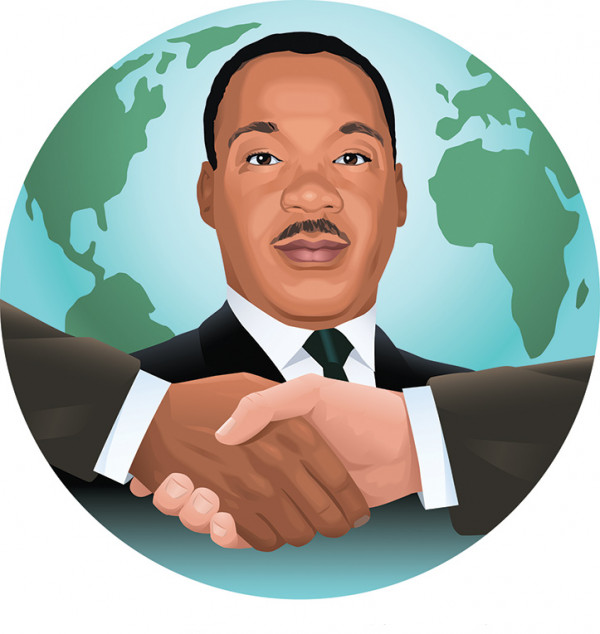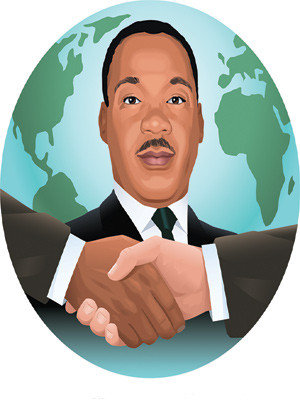Notable moments in the career of Martin Luther King, Jr.


Notable moments in the career of Martin Luther King, Jr.
Each January, Americans honor the life and work of Martin Luther King, Jr. Born in Atlanta, Georgia, on January 15, 1929, King would grow up to become one of the most influential people of the 21st century. Martin Luther King, Jr. Day is a federal holiday celebrated on the third Monday in January each year. Taking time to learn about some of the many notable moments in King’s career is a great way to honor his legacy.
Morehouse College
After attending segregated public schools as a child, King was accepted into Morehouse College at the age of 15. Morehouse College was the alma mater of both King’s father, a pastor, and his maternal grandfather. While King studied medicine and law at Morehouse, perhaps the first major moment of his career in the ministry occurred while he was a college student. It was at Morehouse where King was mentored by the highly regarded theologian and racial equality advocate Dr. Benjamin Mays. Before his final year at Morehouse, King, now 18, chose to enter the ministry.
Montgomery Bus Boycott
Montgomery, Alabama, was a highly segregated city when King and his family relocated to Alabama in the 1950s. Shortly after the King family moved to Alabama, an incident involving a 15-year-old black schoolgirl in Montgomery who refused to give up her bus seat to a white man highlighted racial tensions in the city. Those tensions escalated further nine months later, when 42-year-old Rosa Parks rejected a bus driver’s plea that she give up her bus seat to a white passenger in a section designated for black people. As a result of these incidents, King organized the Montgomery Bus Boycott, which lasted for more than a year but ultimately led to the end of racial segregation on all Montgomery public buses.
Southern Christian Leadership Conference
The Montgomery Bus Boycott made King a national figure, and he capitalized on that recognition to help establish the Southern Christian Leadership Conference. The SCLC was a group of civil rights activists devoted to nonviolent protest. As SCLC president, a role he held until his death, King traveled the globe promoting nonviolent protest and civil rights.
March on Washington
King played an integral role in the organization and execution of the March on Washington for Jobs and Freedom in August 1963. Estimates suggest as many as 300,000 people attended the march, which is considered a watershed moment for the civil rights movement that shone a light on the injustices faced by African Americans across the country. The march culminated with King delivering his most famous address, which is often referred to as his “‘I Have a Dream’ speech.” King delivered the speech while standing on the steps of the Lincoln Memorial and shared his view of a future for the United States in which all people would have equal rights and opportunities.
Martin Luther King, Jr., was a remarkable human being. Celebrations of his life can involve revisiting some of his more notable moments.
9 things you might not know about Dr. Martin Luther King, Jr.
Well respected, honored and appreciated for his civil rights activism, Dr. Martin Luther King, Jr. rightfully earned his place as one of the most influential figures in American and world history. Through his religious teachings and social activism, Dr. King played a key role in the American Civil Rights Movement of the 1950s and 1960s.
While Dr. King lived a good portion of his life in the public eye, many facts of his life are not widely known. In honor of his birthday and Black History Month, the following are some interesting and less publicized facts about Dr. Martin Luther King, Jr.
1. Martin Luther King, Jr.’s birth name was not “Martin,” but “Michael.” Dr. King’s father traveled to Germany and became inspired by Protestant reformer Martin Luther and thus changed his name while also changing the name of his then 5-year-old-son.
2. Dr. King was a prodigious student. Not only did he skip two grades and start college before formally graduating high school, but Dr. King also earned a bachelor’s degree at age 19, graduating from Morehouse College in 1948 with a degree in sociology.
3. Though not a singer, Dr. King earned a posthumous Grammy Award nonetheless. In 1971, Dr. King was awarded Best Spoken Word album for “Why I Oppose the War in Vietnam.”
4. Although people cannot readily find photographs of Dr. King smoking, he was a regular smoker and even hid the habit from the public and from his children so they wouldn’t take up smoking. It was believed Dr. King was smoking a cigarette when he was fatally shot.
5. While Dr. King is remembered as an enthralling public speaker, he actually scored poorly in public speaking during his first year at seminary. He received a “C” in the class but earned straight “As” by his final year.
6. Dr. King was a “Star Trek” fan. He convinced actress Nichelle Nichols, who played the role of “Uhura” on the show, to continue working with the series. Nichols was considering leaving, but Dr. King told her she was breaking boundaries by playing a character who didn’t conform to black stereotypes.
7. Dr. King narrowly escaped an assassination attempt on September 20, 1958. On that day, Dr. King was in Harlem signing copies of his new book, “Stride Toward Freedom,” when he was approached by a woman who stabbed him with a letter opener. He barely survived.
8. Dr. King’s speech in Memphis in April 1968 may have prophesied his death. Speaking to an audience at Mason Temple Church, King said, “Like anybody, I would like to live a long life. Longevity has its place. But I’m not concerned about that now … I’ve seen the Promised Land. I may not get there with you. But I want you to know tonight, that we, as a people, will get to the Promised Land.”
9. Dr. King’s birthday is now observed as a national holiday in the United States per President Ronald Reagan.

